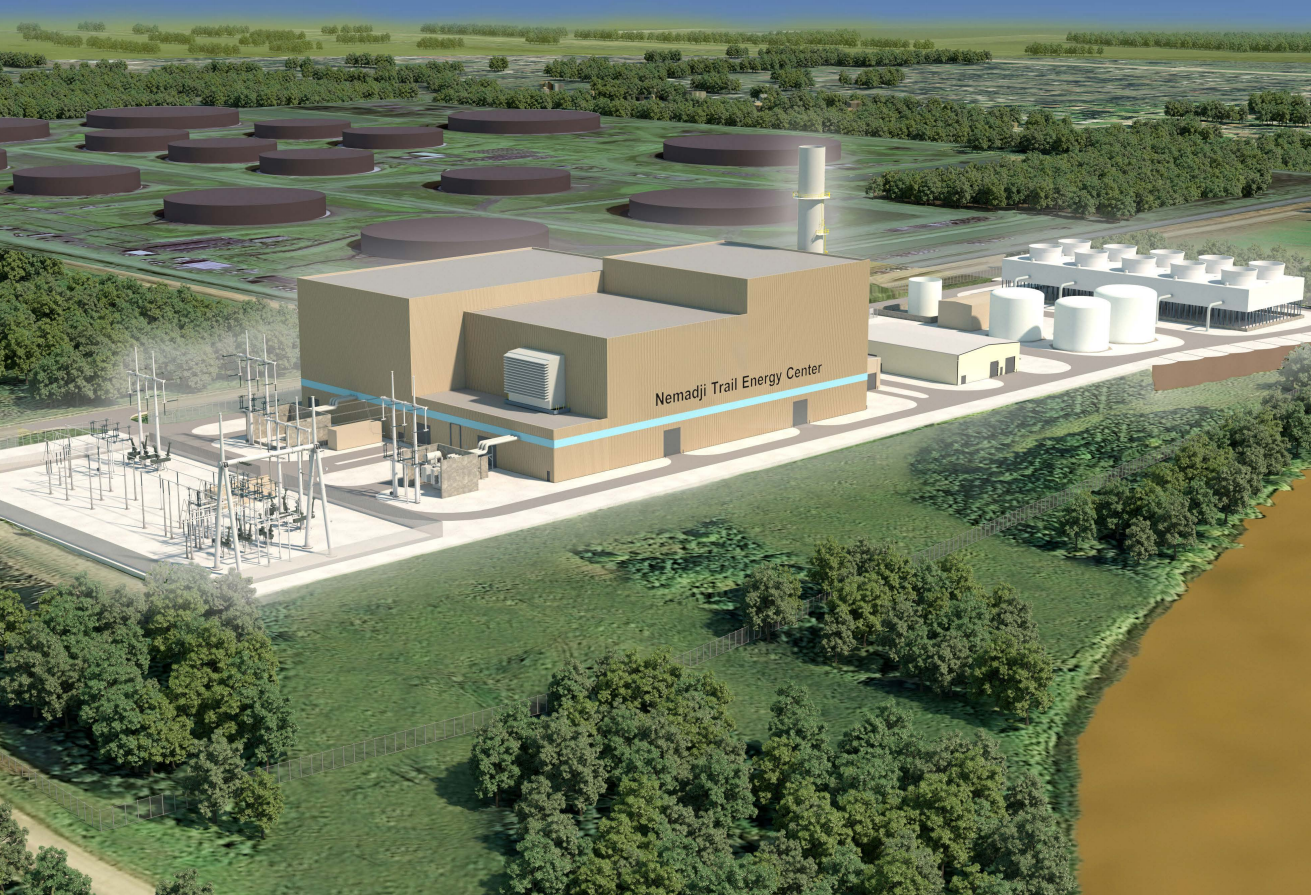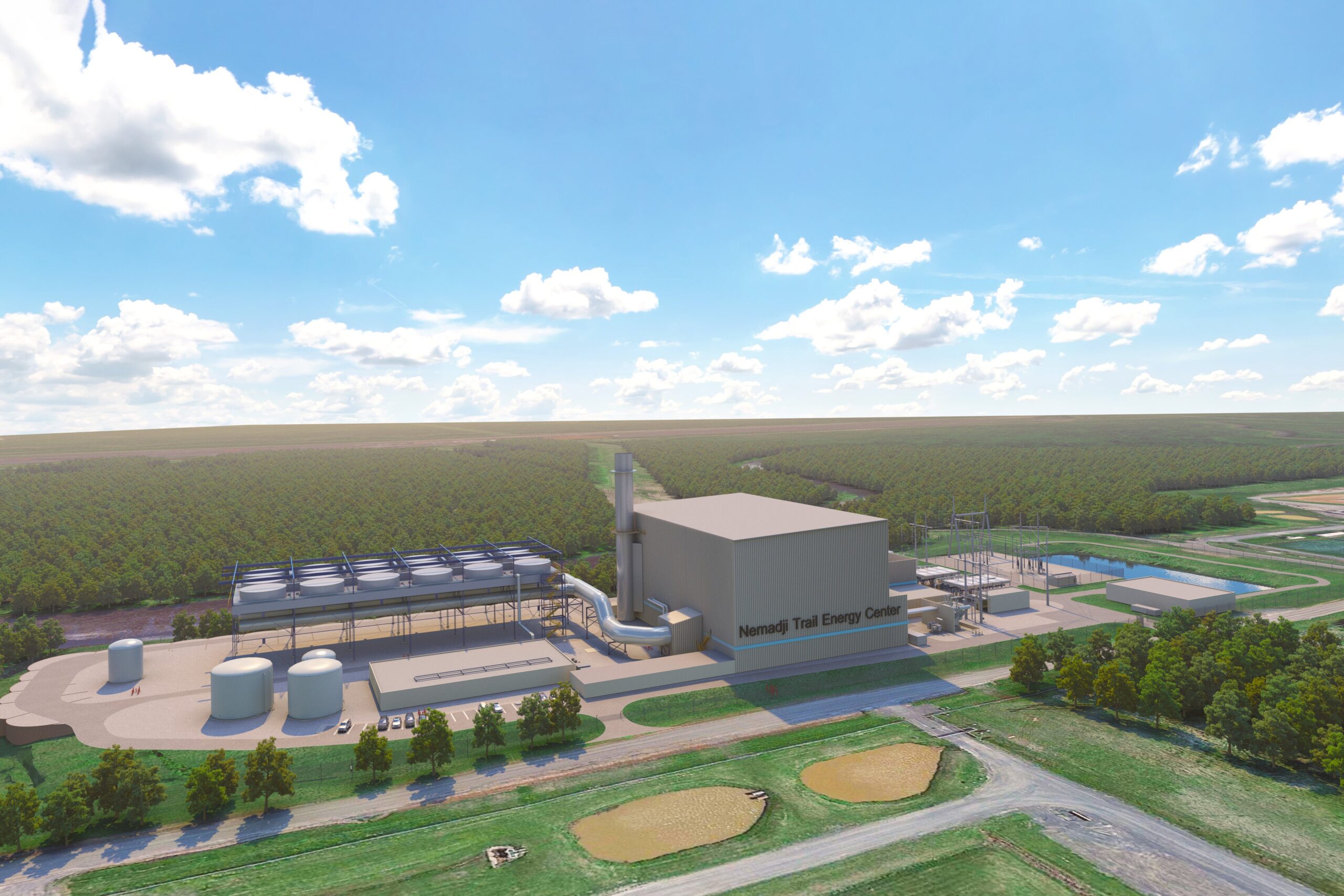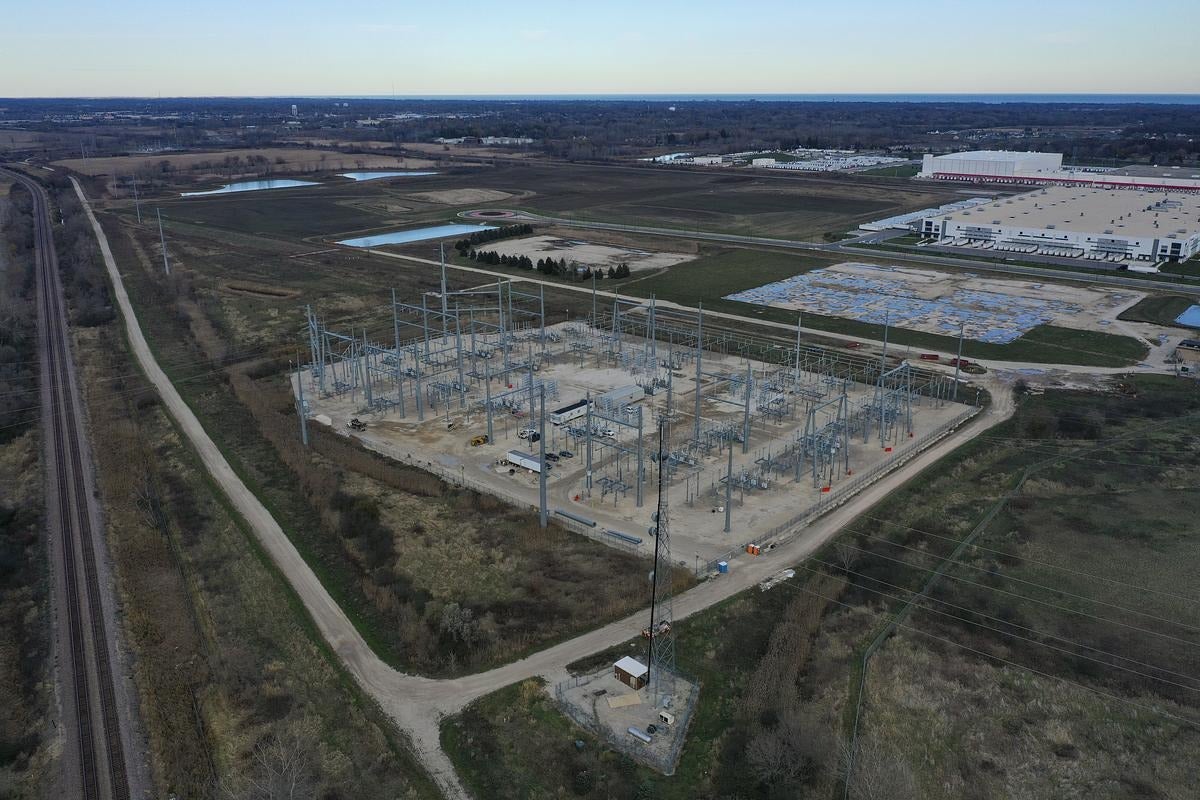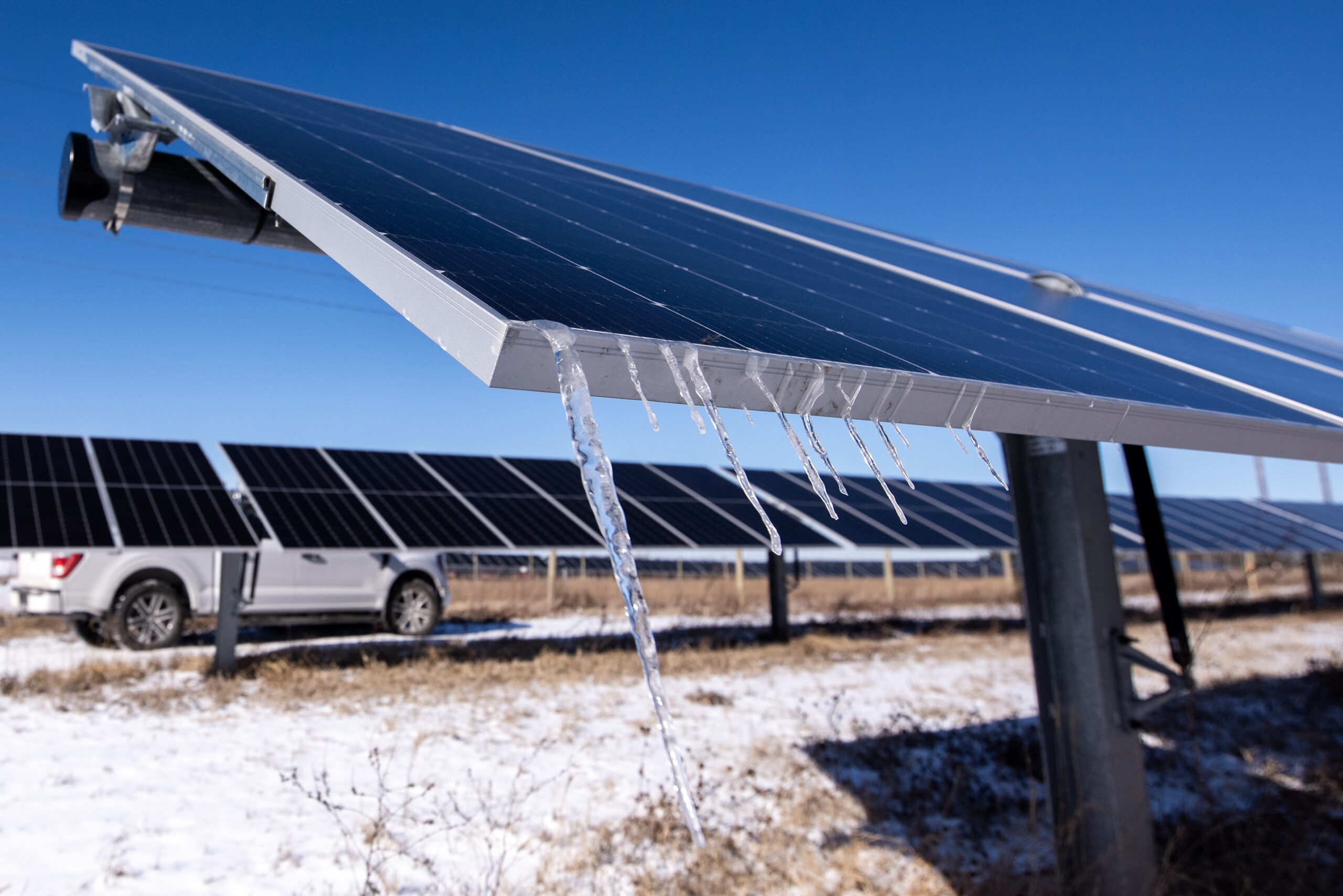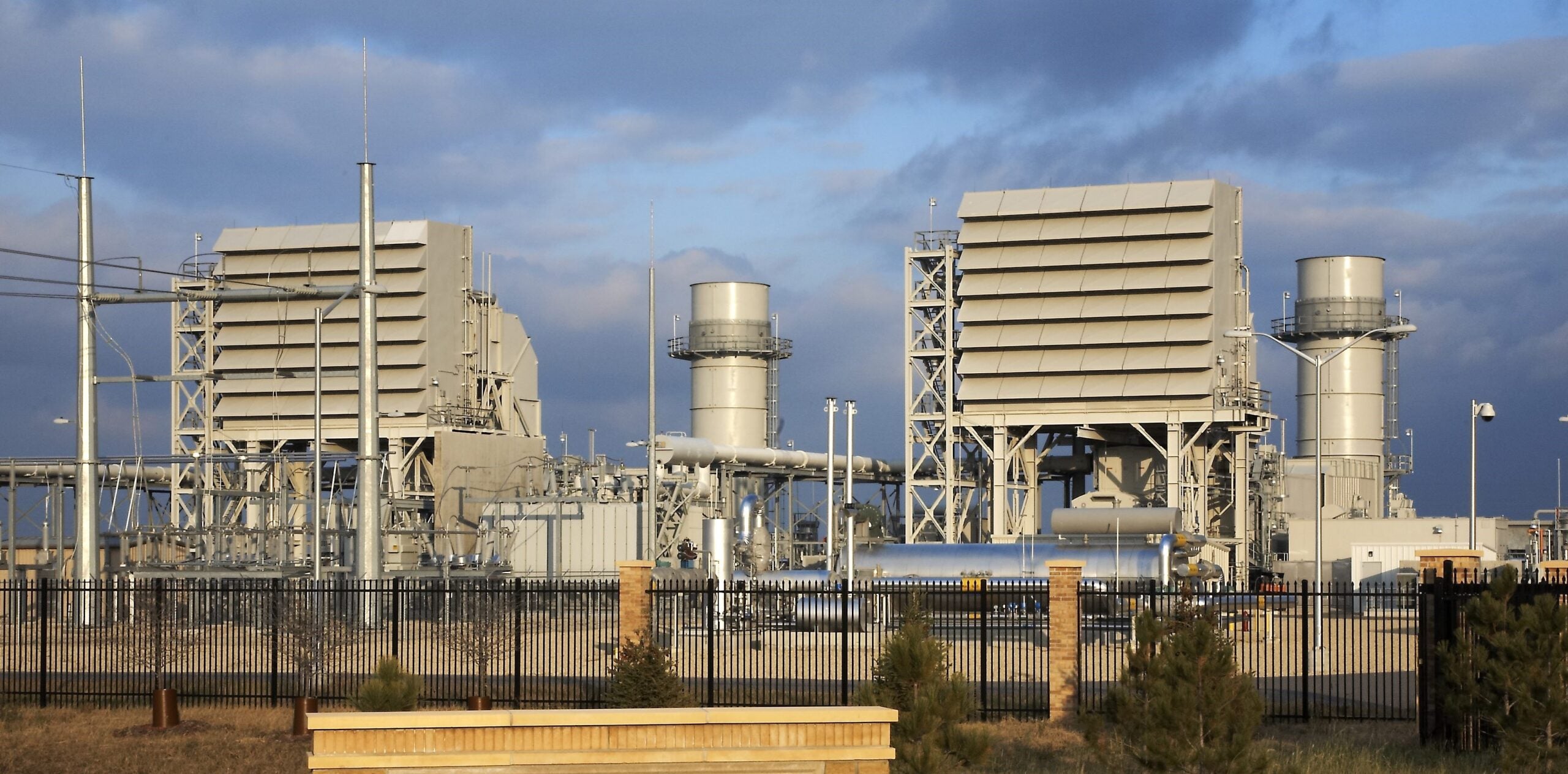La Crosse-based Dairyland Power Cooperative and Minnesota Power began seeking permits from Wisconsin regulators this week for plans to build a $700-million natural gas power plant in Superior.
An application was submitted on Tuesday to the Public Service Commission, which along with other agencies, will evaluate the project.
The Nemadji Trail Energy Center facility is expected to provide as much as 625 megawatts of power when the utility providers are unable to draw from renewable sources like wind and solar, according to Deb Mirasola with Dairyland Power Cooperative. The two utility providers are diversifying energy sources to meet demand.
News with a little more humanity
WPR’s “Wisconsin Today” newsletter keeps you connected to the state you love without feeling overwhelmed. No paywall. No agenda. No corporate filter.
“This project will support our renewable energies with the addition of wind and solar and help us (meet) that growing demand by balancing out that power when the sun isn’t shining and the wind isn’t blowing,” she said.
Minnesota Power has set a goal to provide 44 percent of its power from renewable resources by 2025. Mirasola said Dairyland Power hasn’t set an exact goal, but it’s working toward roughly 25 percent by 2025.
The Nemadji Trail Energy Center would be jointly owned by the two utility providers. Minnesota regulators signed off on the proposal last fall after an administrative law judge said last summer that Minnesota Power didn’t demonstrate the project is needed. The proposal received widespread opposition from the steel and paper industries in Minnesota, as well as clean energy groups.
Katie Nekola, staff attorney with Clean Wisconsin, said in an email that they’re also opposed to the project because it would result in “millions of tons of carbon per year, for the next 40-50 years.”
“We are well past the point when we can afford to add more greenhouse gases to the atmosphere, especially now that renewable energy is cheaper and more available than ever,” wrote Nekola.
However, Julie Pierce, vice president of strategy and planning with Minnesota Power, said the project represents the most efficient way to advance the transition to renewable energy.
“Natural gas, especially the state-of-the-art modern facility that we’re building, is the most efficient and cost-effective plant for providing the reliability that is needed on the electric system when we don’t have enough renewable generation or variable generation to serve our customers,” said Pierce.
Minnesota Power serves around 145,000 customers to largely northeastern Minnesota while Dairyland Power provides wholesale power to 24 member cooperatives in southern Minnesota, western Wisconsin, northern Iowa and northern Illinois.
The Public Service Commission and other agencies will review the proposed facility’s environmental impacts and siting.
However, Tom Content, executive director with the Citizens Utility Board, said the commission doesn’t have to look at the need for the project or cost to customers.
“Because it’s essentially being proposed as a merchant plant, in other words, a non-utility plant,” said Content. “But, then, in turn, the energy would be sold to Dairyland and Minnesota Power.”
Content noted Superior Water, Light & Power buys electricity from Minnesota Power, adding that Superior customers are already facing a rate increase due to the Husky Energy refinery explosion and fires last year.
“Citizens expressed concerns about costs going up for both the water side and the electric side,” he said. “It’s often the case when you add more capital investment like a project such as this that there are cost pressures.”
Pierce said Minnesota Power customers would likely pay 2 percent more in the first year of the plant with rates declining over time. Meanwhile, Mirasola said Dairyland Power’s members set their own rates.
“We would not have entered into this project without the support of Dairyland’s members,” she said.
Superior Mayor Jim Paine, who supports the project, said it’s fair for residents to be concerned about increases in rates for new infrastructure.
“In this case, I believe that ratepayers are getting a very real service,” he said. “They’re getting a far more efficient energy system, and I believe it paves the way for more affordable energy in the future as well.”
Paine said investments in infrastructure must be made to move away from inefficient, aging coal plants. He added that he would support suggestions by environmental groups that the two providers move away from coal generation once the plant is built.
If constructed, the power plant would be the largest investment ever for the city of Superior and Douglas County. The project is expected to create 260 construction jobs, about 25 full-time positions, and roughly $1 million each year in local tax revenues. The providers claim it also represents a $1 billion investment in the region over 20 years.
Construction might begin by 2020 if approved. Dairyland Power and Minnesota Power officials said they hope the plant will be in service by 2025.
Wisconsin Public Radio, © Copyright 2025, Board of Regents of the University of Wisconsin System and Wisconsin Educational Communications Board.

